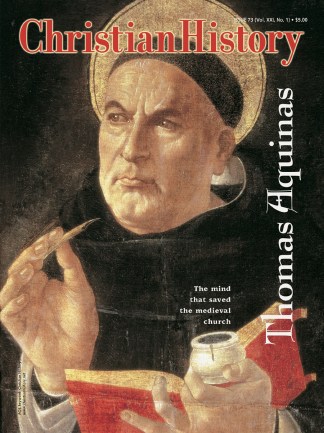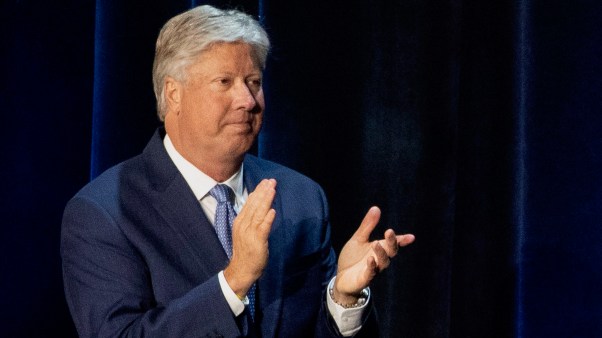In this series
Like Aristotle, Thomas Aquinas considered all areas of thought his province. As a result, he became unquestionably the most systematic political philosopher of the Middle Ages, as well as an original legal theorist and an unconventional economist.
Government, Aquinas taught, is the result of sin and is necessary to mitigate its consequences. Political organization is natural to fallen man and necessary for his development. Even though the church is superior to the state, and the greater purpose of man is eternal life, the temporal world is important, and peace and order, leading to temporal happiness, can be preserved through the state.
While sin necessitates government, law undergirds it. Specifically, Aquinas defined four types of law.
Eternal law, which governs the universe, comes from the eternal and immutable decrees of God. Natural law, which enables people of reason to understand eternal law, is also ordained of God, but unlike the secret decrees of God, it is perceptible through reason. Human law consists of concrete rules enacted by man. Divine law, which is the ultimate will of God, is revealed in Scripture.
Aquinas believed that all law was essentially reasonable and binding. Political authority, by contrast, was binding only if it conformed to natural law, divine law, and the common good of the community. Otherwise, governments would become tyrannical.
Attention to the common good also drove Aquinas’s economic ideas, which were, not surprisingly, based on Aristotle. These ideas principally concerned interest rates and prices.
Aristotle thought that charging interest on a loan, known in the Middle Ages as “usury,” was unfair and unnatural because instead of using money to procure valuable goods, usurers used wealth to create more wealth. Aquinas put it this way: “to receive usury for money lent is, in itself, unjust, since it is a sale of what does not exist.”
Even by Aquinas’s day, lending at interest was too widespread to root out. The market economy was still developing, though, and Aquinas sought to influence it for the common good with what became known as “just price” theory.
Both Aristotle and Aquinas had reservations about merchants, but Aquinas was much more realistic. Aristotle thought that vendors should never sell goods for more than they paid for them. Aquinas thought that vendors deserved to be compensated for their labor, out-of-pocket costs, and risks. The cost of the product, plus related expenses and a small margin for profit, represented the just price. Additional mark-ups were selfish and destructive, even if the new price represented what the market could bear.
So, if Aquinas were campaigning for president, he might vow to make communities safer, recall justice to its historic and divine roots, drop the interest rate to zero percent, and mandate just prices for all goods and services. He would win every debate, but not many votes.
Copyright © 2002 by the author or Christianity Today/Christian History magazine. Click here for reprint information on Christian History.











